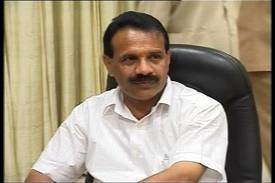
Bangalore, May 1: Pegging the estimated loss caused by drought at Rs 5,000 crore, Karnataka Chief Minister D V Sadananda Gowda today expressed hope that the Centre would share at least half of this burden to help the BJP government carry out relief works on a war-footing.
Gowda is leading an all-party delegation to meet Prime Minister Manmohan Singh and other Union Ministers to discuss the drought conditions and seek Central assistance to overcome the calamity which has hit 25 of the 30 districts.
Talking to reporters on the eve of his three-day visit to Delhi, Gowda said he would meet Agriculture Minister Sharad Pawar tomorrow and apprise him of the condition of farmers who were the worst sufferers due to drought, which has been the most severe that the state has witnessed in last eight years.
The delegation would also meet Finance Minister Pranab Mukherjee to seek immediate release of funds.
Gowda said the visit of UPA Chairperson Sonia Gandhi to a drought-hit village in the state last week would help Karnataka get a better package.
The Chief Minister said he would also discuss the problems faced by red-gram growers and sericulture farmers in the state with the concerned ministers.
The all-party delegation would include Rural Development Minister Jagadish Shettar and some other ministers, Congress Leader and Leader of Opposition in the Assembly Siddaramaiah, Chairperson of the Legislative Council Motamma and Janata Dal(S) leaders H D Revanna and Basavaraj Horatti.





Comments
Add new comment